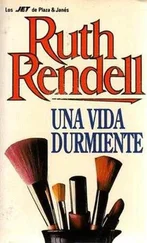Arthur had been rather perturbed during the previous week to observe that on two mornings the post had been taken in by someone else. But that hadn’t happened since Saturday—thanks to his watching from his living-room window for the postman to appear round the corner of Camera Street, and taking care to be down in the hall in good time. In any case, no further mauve-grey envelopes had arrived. The woman wouldn’t write again. She had now been twice rebuffed and she wouldn’t risk a further snub. Tuesday, November 19, and Wednesday, November 20, went by. Those were crucial days, but they brought Anthony Johnson only a letter from York from his mother. Arthur felt more relaxed and peaceful than he had done since the night of November 5, although it gave him a certain bitterness to notice, now when it was too late and unimportant, that twice this week already no light had fallen from the window of Room 2 on to the courtyard in the evenings.
Friday, November 22, dawned cold and wet. Arthur saw Anthony Johnson leave the house at eight-thirty and Winston Mervyn follow him five minutes later. Then Li-li Chan emerged. She stood at the front gate under a red pagoda umbrella, scanning the cars that turned into Trinity Road from Magdalen Hill. Then the front door slammed with a Dean-like crash and Arthur heard her platform soles clumping up the stairs. He opened his door and put it on the latch.
Li-li was on the phone.
“You say you come at eight-thirty. You are oversleeping? Why don’t you buy alarm clock? I am late for my work. You would not oversleep if I sleep with you?” Arthur clicked his tongue at that one. “Perhaps I will, perhaps I won’t. Of course I love you. Now come quick before I get sack from my job.”
It was five to nine before the car came for her, an ancient blue van this time. Arthur went down to take in the post. There was nothing on the mat, so presumably the postman hadn’t yet come. But as he turned back into the hall, he saw that the table which on the previous night had been bare even of vouchers, now held a pile of envelopes. The post must have come early and while he was listening to Li-li’s phone conversation. She had taken it in herself.
His own new Barclaycard, two circulars for Winston Mervyn and—unbelievable but real—a mauve-grey envelope postmarked Bristol. She had written again. Was there no stopping her? Arthur held the envelope in his fingertips, held it at arm’s length, as if it might explode. Well, he had decided no Bristol letter must ever be allowed to reach Anthony Johnson and that decision should stand. Better burn the thing immediately as he had burned the last. And yet … A thrill of fear touched him. Li-li had taken that letter in, might or might not have noticed it. But how could he be sure she hadn’t? If Anthony Johnson began to wonder why no letter had come for him for three weeks and started asking around—following up, in fact, H’s suggestion, though it had never been communicated to him—then Li-li would remember.
Again he steamed open the envelope.
Darling Tony, What have I done? Why have you rejected me without a word? You begged me to make up my mind and let you know as soon as I could. I did let you know by the Tuesday. I told you I was willing to leave Roger as soon as I heard from you and that I’d come to you. That was November 5 and now it’s November 21. Please tell me what I did and where I went wrong. Is it because I said I couldn’t promise to love you for ever? God knows, I’ve wished a thousand times I’d never written those words. Or is it because I said I hadn’t told Roger? I would have told him, you must believe me, as soon as I’d heard from you .
I think I’ve lost you. In so far as I can think rationally at all, I think I shall never see you again. Tony, you would have pity on me if you knew what black despair I feel, as if I can’t go on another day. I would even come to you, only I’m terrified of your anger. You said there are other women in the world. I am afraid to come and find you with another girl. It would kill me. You said I was the only woman you had ever felt real passion for, apart from wanting them as friends or to sleep with. You said you thought “in love” was an old-fashioned meaningless expression, but you understood it at last because you were in love with me. These feelings can’t have been destroyed because I wrote tactless silly things in my first letter. Or weren’t they ever sincere?
Roger has gone to Scotland on business. He’s to be there at least a fortnight and wanted me to go with him, only I can’t get time off from work till next Wednesday. Tony, while I’m alone here, please will you phone me at home? At any time during the weekend—I won’t leave the house—or next week in the evenings. I beg you to. If I ever meant anything to you in the past, if only for what we once were to each other, I beg you to phone me. If it’s only to say you don’t want me, you’ve changed your mind, I want to hear you saying it. Don’t be so cruel as to let me wait by the phone all the weekend. I can take it—I think—if you say you’ve changed. What I can’t take is this awful silence .
But, Tony, if you don’t phone, and I have to face the possibility that you won’t, I shan’t write again. I don’t know what I shall do, but what little pride I have left will keep me from throwing myself at you. So whatever happens now, this is my last letter. H.
That, Arthur thought, rereading the last sentence, was at any rate something to be thankful for. But if Anthony Johnson saw this letter he’d be on the phone at once, tonight. And in their conversation it would all come out, the dates she’d written and the things she’d written. Yet Anthony Johnson must see this letter because Li-li Chan had already seen it.
By now it was almost twenty past nine. Arthur considered not going to work, phoning Mr. Grainger and saying he’d got this gastric bug that was going about. He seemed to see Auntie Gracie loom before him, shaking her head at his deceit and his cowardice. Besides, he’d have to go back tomorrow or the next day. Shivering as if he were really ill, he dragged on his raincoat and took his umbrella from the rack in the hall. What to do with H’s letter? Take it to work and try to think of some solution. He could come home at lunchtime, anyway, in good time to restore it if he could find no alternative but to deliver it and himself into Anthony Johnson’s hands.
He was late, of course, late for the first time in years. Drizzle speckled the office window, then rain gushed in sheets against the glass. In a wretched state that was intensely nervous and at the same time apathetic, Arthur opened Grainger’s post, though he felt he never wanted to see another envelope as long as he lived. The handwriting of potential customers who wanted roofs retiled and central heating installed danced before his eyes. He typed two replies, full of errors, but at last there was nothing for it but to take H’s letter out of his briefcase and scrutinise it once more.
Should he take a chance on Li-li’s having failed to notice it? The chances were she hadn’t noticed it among so much other stuff. Since there seemed no alternative, this was a risk he would have to take. Destroy the letter now and hope Anthony Johnson either wouldn’t bother to ask her or that she wouldn’t remember. He had closed his fist over the two sheets of flimsy paper when he realised, with a new terror, that even if Anthony Johnson didn’t get this latest of H’s letters, he would still discover the injury that had been done him. For on Wednesday, November 27, next Wednesday, the last Wednesday in the month, he would phone H as he always did and the whole thing would come out.
Arthur ground two sheets of paper into his typewriter and struggled with a reply to a Mr. P. Coleman, who wanted Grainger’s advice on the conversion of his nineteenth-century coachhouse into a dwelling for his mother-in-law. H’s letter would have to go back to 142 Trinity Road by one and it was eleven now. He’d brazen it out, that was all. He’d deny in his most severe manner ever having touched Anthony Johnson’s correspondence. Useless to keep turning things over in his mind like this when there was no help for it. He glanced at the sheet on which he was typing and saw he had put an H instead of a P before Coleman and “convict” instead of “convert.” The paper was torn out and a fresh sheet inserted. Anthony Johnson would go at once to the police. The police would stop hunting for Brian Kotowsky and start thinking seriously about Arthur Johnson, who never went out at night but who had been out that night; who was a resident of Kenbourne Vale at the time of the murder of Maureen Cowan and at the time of the murder of Bridget O’Neill; who had unaccountably lied to them.… He flexed his hands to try and prevent their trembling.
Читать дальше











